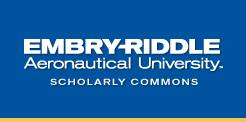Publisher
Embry-Riddle Aeronautical University
Abstract
The purpose of this paper is to examine the impact the effect of mechanical vibration tests on the performance on the EcoCAR3 which is a Plug-in Hybrid Electric Vehicle (PHEV). PHEVs require new control and energy management algorithms that are crucial for vehicle performance. In this paper the creation of a test plan, procedures, and the actual vibration tests are considered. Similar models such as the EcoCAR2 have been developed to evaluate vehicle performance for conventional and hybrid architectures. However, the inclusion of a vibration test on the EcoCAR3 is expected to boost its performance. Various standards as well as test procedures and definitions are used in this analysis. The paper provides quantitative and qualitative analysis of the control algorithms to analyze their effects vibration on the performance of EcoCAR3; these results are compared with the results of the models developed before EcoCAR3. Some important advantages of performing mechanical vibration tests on vehicle or automotive components are shown and can be useful in the design of the optimal control algorithms for PHEVs. As shown in the results, the performance problem for PHEVs is not limited to vibrations, but it also involves external factors, such as price of electricity, energy market and regulations, charging - availability, battery life issues, etc.
Recommended Citation
Ngwe Neh, Lesley E.
(2016)
"EcoCAR3 COMPONENT TEST PROCEDURE AND DEFINITION: An Evaluation of the Impact of Mechanical Vibration Tests on the Performance on a Plug-in Hybrid Electric Vehicle,"
McNair Scholars Research Journal: Vol. 3
, Article 2.
Available at:
https://commons.erau.edu/mcnair/vol3/iss1/2
